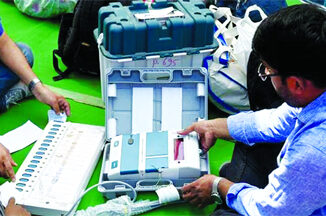
Alightning fast re-indictment on March 14th, within 2 days of a judge’s dismissal, speaks to the Prosecutor’s rebuke of those who misunderstand law and chose to personalize their disrespect, while continuing to seek to hold a person liable for her alleged criminal wrongs.
Any and all attacks on the prosecution were wrong in-fact and counterproductive at best, and all those who wish to engage in that mind-numbing sport ought to cease and desist. The legal process deserves respect, especially given the adversarial system of justice – anything less misdirects logic and proportionality, the hallmark of justice, when forced to function in a river of insults.
I am disturbed by what I have seen occur from December 12th to March 12th, when Judge Scheindlin issued her surprising and unexpected technical-dismissal of the January 9th Indictment. There has been much noise from all quarters since December 12th, who sought to vilify the United States and our abovepolitics United States Attorney Preet Bharara. Some, perhaps, to derail the bilateral relationship.
Others, perhaps, questioning how could a friendly nation treat another so. Yet others, were playing for personal advantage – much as an undertaker does upon every death. But the most painful cut, made repeatedly, was the legally false or factually false-laced comment coming from a source whose job was to defend Devyani, within the bounds of law. While lawyers, like doctors, can misdiagnose, they ought not misrepresent facts. Certainly, to do both, and repeatedly, when you have over 1 billion good and decent people worried about national respect and national honor is beyond comprehension as it is a core wrong.
This misdiagnosis and mis-statements caused legal and factual false predicates to give birth to false public expectations in India and false governmental bureaucratic judgment. I know, as I took unexpected heat for properly diagnosing that Devyani lacked diplomatic immunity while holding an A-visa – even as I admitted that the arrest-off-the-street was excessive and ought not have been done. It even gave false birth to genuine public anger against the United States and US Attorney Bharara. The height of which were folks marching in India against President Obama and the American Flag. There were even unseemly and false stories about US Attorney Bharara’s political ambitions.
This was, and is, wrong. Preet Bharara has earned his spot in the pantheon of legendary Southern District prosecutors like my mentor, the great Bob Morgenthau. Perhaps, the greatest wrong are the birth defects of the Devyani case, which in retrospect, I’m sure no one in the State Department knowing what they now know, would have ever asked the Justice Department to prosecute Devyani. Just look at who is involved, and not merely what is alleged to have occurred. Sangeeta Richard, who twice went to the United States Embassy in Delhi to lie about her contract of employment and scam herself a visa-approval; Philip Richard, who after getting to the United States, wants a divorce because Sangeeta, he says, can’t be trusted and lies; Wayne May and his wife, who while posted in India were anti-India and anti-Indian – worthy of a “Ripley’s Believe it or Not” episode.
Such a posting between friendly nations is diplomatic malpractice at best. Can you imagine our State Department posting an anti-Semite to Israel, and who, along with his wife while there, enjoy mocking the receiving nation and its citizens on Facebook? The second greatest wrong is the pre-birth twin facts of prior legal proceedings in India against Sangeeta Richard, and the shocking evacuation of Philip Richard and family, well timed to occur prior to Devyani’s December 12th arrest. The law would have been better enhanced, while being mutually respectful, if India’s prior case and America’s subsequent case, each against their respective defendant(s), took its turns and twists to find justice.
The evacuation stands as a core wrong, with lingering need for redress. After the successful negotiations between our Secretary of State John Kerry, and India’s Foreign Minister Salman Khurshid, Devyani was legally allowed to go home due to the State Department’s grant of a G-visa to replace her Avisa. The A-visa did not immunize her from being charged or arrested for what she was, and now again, is. That the A-visa was replaced by G-visa, proved the vitality, portance and warmth both nations place upon the bilateral relationship – from President Obama to the everyday hardworking American citizen. But, then, Devyani made her most critical error: instead of resolving the criminal charges, with the best possible resolution, including, a non-jail sentence along with an additional civil resolution, she sought an outright dismissal of the criminal charges based upon a mere 1-day full immunity consequence of a G-Visa, which had no retroactive effect of cloaking her.
This was nothing short Caesarian hubris, overlaid on legal misdiagnosis and misrepresentation of facts. A trilogy of tragic proportions. Now, what must be avoided at all costs is an unearned chill between friends – India and United States, and Indians and Americans. From the presence of Indian tea at the Boston Tea Party to the innocent blood shed upon Lord Cornwallis’ cold command when stepping foot in India after losing “the Colonies” to General George Washington, these two nations have a joint destiny. Indeed, even Christopher Columbus only found the New World because of India.
History will not kindly look upon additional colossal errors, nor will destiny willingly permit same. Devyani was, and ought to remain, a mere hiccup in the most important bilateral relationship of the 21st Century. On this Ides of March, as I remember Julius Caesar who ruled the world and brought us the Pax Romana, it is good to embrace humility, as it helps minimize errors of judgment in any capital of a sovereign nation, and the need to separate from folks, whose misjudgments and misrepresentations. Let only those who know the actual law and honor the real facts have the right to make binding judgments to keep the public peace, enhance the public good, and seek to form a more perfect world.”





Be the first to comment